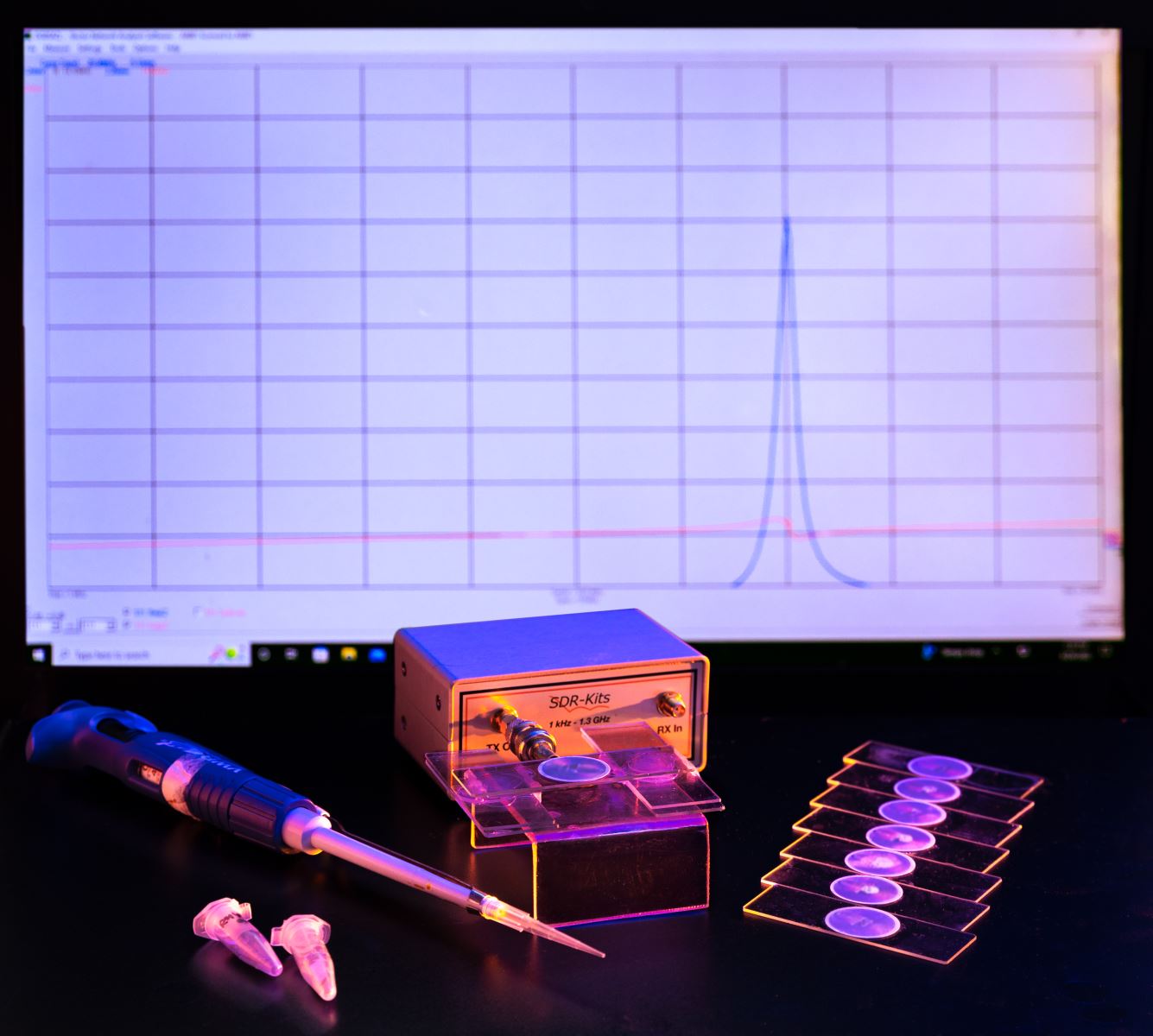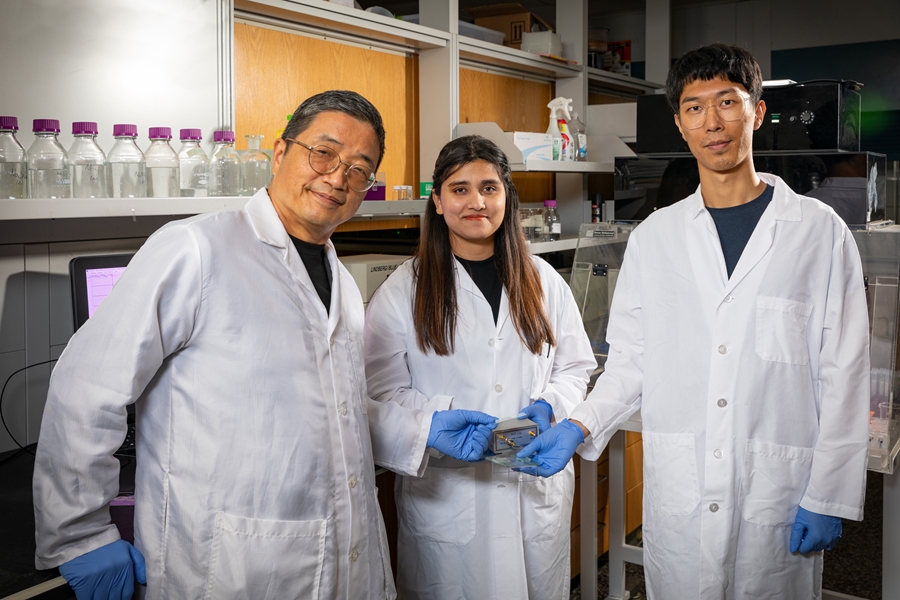The National Institute of Standards and Technology, via an application from the RAPID Manufacturing Institute, awarded the University of Arkansas $699,604 to improve a Wi-Fi nano-biosensor that will be used in a palm-sized, low-cost and wireless SARS-COV-II detection system.
Ryan Tian, an associate professor in the Department of Chemistry and Biochemistry, is the principal investigator. The detection system is anticipated to be the first of its kind, delivering not just more accurate positive and negative results in real time, but also confirming whether the coronavirus variants are alive (infectious) or dead (noninfectious).
“Our preliminary data strongly support the new nano-biosensor’s timely delivery,” Tian said. “The fact that our detector can tell whether the coronavirus is dead or alive, and not merely provide a positive result like current tests on the market, will change the game in fighting COVID and other future pandemics.”
The award to Tian and his team is part of a $3.77 million NIST grant to Avadain LLC, the Southwest Research Institute, Flextrapower Inc. and the U of A to scale up the production of graphene for use in improved respirators and nano-biosensors intended to reduce the transmission of coronavirus. As part of that larger grant, the Southwest Regional Institute will both provide and scale up its production of a higher-quality graphene flake that is large, thin and nearly defect free.
 |
|
A prototype of Tian’s detector |
Graphene is a two-dimensional material that is a single atom in thickness and is one of the strongest, lightest and most conductive materials known. A key component of the team’s current nano-biosensor is graphene oxide, a low-cost substitute for graphene. Graphene and graphene oxide are chemically and physically different derivatives of graphite, a crystalline solid of carbon.
But according to Tian, graphene oxide has structural defects that hinder the charge transfer across the nano-biosensor’s surface. The high-quality graphene produced by Southwest Regional Institute is expected to improve the nano-biosensor’s accuracy, sensitivity, reliability and detection speed, potentially vaulting it ahead of other types of COVID-testing tools currently on the market such as PCR machines and ELISA test kits.
Tian also expects the detector to provide results at a lower cost, with greater user friendliness and simpler, large-scale manufacturing than the other test kits on the market. Under the terms of the grant, Tian and his team will deliver a cellphone-based, palm-size tool that detects coronavirus particles in the specimens and transmits the data via Wi-Fi.
Tian’s team was also awarded $50,000 from the NSF I-Corps Program. This program will allow Tian and his doctoral students, Ruqaiza Muhyudin and Yang Tian (no relation), to explore commercialization opportunities for the nano-biosensor. Tian says his sensor can also be used to detect foodborne, waterborne and airborne bacteria, as well as viruses, T- and B-cells, stem cells and cancerous cells. He anticipates it having broad applications for the food industry, healthcare and border security.
About the University of Arkansas: As Arkansas' flagship institution, the U of A provides an internationally competitive education in more than 200 academic programs. Founded in 1871, the U of A contributes more than $2.2 billion to Arkansas’ economy through the teaching of new knowledge and skills, entrepreneurship and job development, discovery through research and creative activity while also providing training for professional disciplines. The Carnegie Foundation classifies the U of A among the few U.S. colleges and universities with the highest level of research activity. U.S. News & World Report ranks the U of A among the top public universities in the nation. See how the U of A works to build a better world at Arkansas Research News.
Topics
Contacts
Ryan Tian, associate professor of chemistry and biochemistry
Institute for Nanoscience and Engineering
479-575-2653, rtian@uark.edu
Hardin Young, assistant director of research communications
University Relations
479-575-6850,
hyoung@uark.edu
